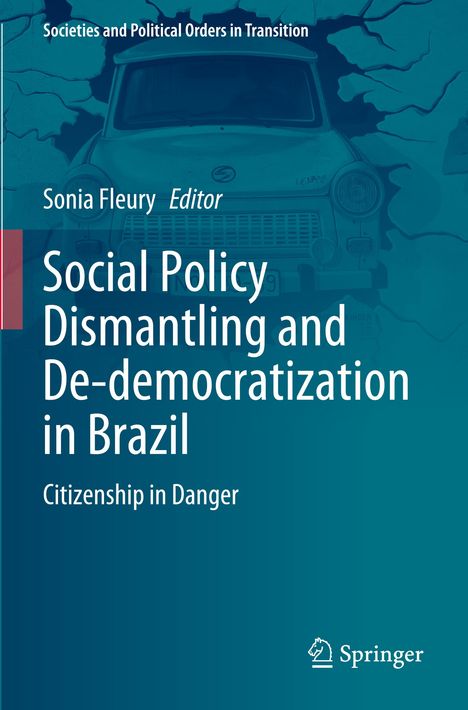Social Policy Dismantling and De-democratization in Brazil, Kartoniert / Broschiert
Social Policy Dismantling and De-democratization in Brazil
- Citizenship in Danger
(soweit verfügbar beim Lieferanten)
- Herausgeber:
- Sonia Fleury
- Verlag:
- Springer Nature Switzerland, 08/2024
- Einband:
- Kartoniert / Broschiert, Paperback
- Sprache:
- Englisch
- ISBN-13:
- 9783031351129
- Artikelnummer:
- 11948632
- Umfang:
- 248 Seiten
- Nummer der Auflage:
- 2023
- Ausgabe:
- 2023
- Gewicht:
- 382 g
- Maße:
- 235 x 155 mm
- Stärke:
- 14 mm
- Erscheinungstermin:
- 23.8.2024
- Hinweis
-
Achtung: Artikel ist nicht in deutscher Sprache!
Weitere Ausgaben von Social Policy Dismantling and De-democratization in Brazil |
Preis |
|---|
Klappentext
This book examines the emergence of authoritarian populist regimes, analyzing Brazil as a case study. The authors explain how the tactics employed by the Bolsonaro administration to dismantle bureaucracy and public policies, especially labour and social policies, find expression in the fiscal austerity measures recently inscribed in the Federal Constitution: a counter-democratic device employed by technical and financial elites to systemically derail the social protection system. Through this in-depth case study, the book presents new theoretical arguments and concepts that can be useful to understand the dynamics of such new regimes, and discussing similar cases in other contexts. Democratic governments in Brazil, driven by social movements and political actors, have strengthened social protection through a distinctive institutional architecture that combines the strengthening of public bureaucracies, the creation of intergovernmental networks, and the democratic instances ofsocial participation and agreement. The contributions throughout this volume analyze these transformations in different sectors of public policy, such as labour, employment, pensions, food and nutrition security, health, and social assistance. Each contribution discusses the recent trajectory through a political analysis of the main actors and institutions, reform processes and policy changes, and the results achieved. Finally, the existing weaknesses in each of these social protection sectors are identified in the context of the literature on policy dismantling, revealing the strategies used to take advantage of these political and institutional weaknesses.
This book will appeal to students, scholars, and researchers of political science and public policy, interested in a better understanding of de-democratization by social policy dismantling.


